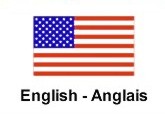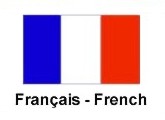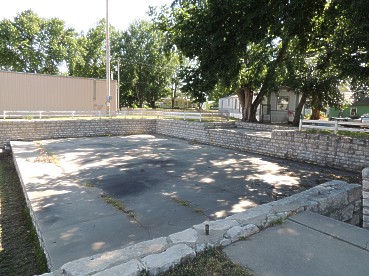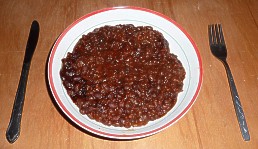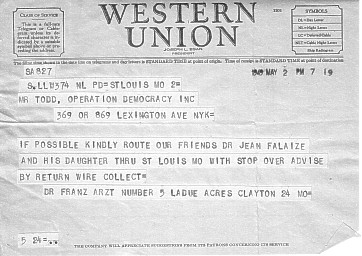In most regards, it seemed like any other small, rural Kansas community. The exception was the Stadium. Here and there, its
concrete was cracked, allowing a few weeds to take hold. It stood as a silent monument to something unique that had happened
there almost 65 years earlier.
When Freeland and Vaughan left Morganville that day, it was with the expectation that they would never return. While
it was an uplifting story, their real interest was in Velma Carson, the woman who wrote the 4,500-word script in two weeks.
The stage area of the Stadium. During the play,
the old settlers were seated on
chairs placed
behind the notch in the wall at the right.
Because she was a KSU graduate who had a very successful career and had majored in Freeland's area, her department was
interested in Carson's story. Papers donated to the university by her son-in-law Gould Colman might provide enough material
for a book. They would know more after visiting with him in his home in Ithaca, New York at the start of September.
At the end of July, the couple left for their annual vacation in the north woods of Wisconsin. There, the editing of the
village stories continued. On August 7, what they thought would be the final version of the Morganville story was
completed.
But in a touch of serendipity, the couple's daughter Katherine would be traveling to France the following spring as a member of
the KSU choir. Vaughan and Freeland planned to travel with the group and thought it might be fun to take a side trip to Fèves.
They could satisfy their curiosity about the French village with a quick visit, much as they had with Morganville.
Yet locating information about the village proved to be a bit more challenging than expected. While its name had a Roman
origin, years of small spelling changes had left the village with the same arrangement of letters as the French word for beans.
Searching the internet for Fèves initially only yielded recipes in French utilizing the common legume!
Fèves au lard - Baked beans. What was the knife used for?
A village website was eventually found and Vaughan began looking at the various pages. Neither Freeland nor Vaughan speak
French, but curiosity drove him on. Locating an e-mail address, he decided to send a short message in English, asking if
anyone recalled their sister village back in Kansas.
But no response came. In about a week, he tried again. Still there was no answer. He then sent a third message, but decided
any additional attempts would be in French.
Having received no reply by August 21, he planned the next morning to write his niece, who was fluent in French. He would
ask her to compose a message for him. So he was completely surprised when he opened his e-mail the next day to find the following
message in his inbox.
Dear Mr. Vaughan,
My name is Hervé Torlotting and I am the son of Gérard Torlotting living in Fèves, France. I live in Houston TX, but I was
visiting my family in Fèves when you sent your message seeking info on Mr. Torlotting Henri, the school teacher. My father
Gérard is in fact the late Henri Torlotting's nephew and the little boy dressed in a suit on the picture that you probably
have in your archive.
My father is now the mayor's first assistant. Both the mayor and my father are interested to keep in touch with you and
maybe discuss further about the connection between Morganville and Fèves. We have a couple of pictures that could interest
you. You may have some as well ...
Best Regards,
Hervé Torlotting on behalf of Gérard Torlotting
Freeland and Vaughan's interest surged. Not only had the village been located, but people involved in the twinning were available and also interested. Hervé would be able to facilitate communications.
Several things soon converged to render the story of the two villages anything but complete. Upon visiting the Colman
home in September, they saw the poster from Haney's program on the dining room table. The Colmans had taken an interest
in Haney's 1994 revival of the story.
Later, back in Kansas, while perusing the Carson items Colman had donated to the university's special collections,
a great many artifacts related to the pageant were found, such as the notebook of events, letters, and receipts for
shipments of clothes and food.
Todd telegram found in Carson papers
concerning his 1949 Wichita trip
At the start of October, Vaughan still wasn't certain if the sister-city tale was best thought of as a story by itself or
just a part of Carson's life. But he was sure the time had come to organize the facts in a fashion that would make them
easily accessible. This took the form of a website. He decided to take McKee's 1955 book version as the basis, adding
liberal annotations to explain references that had become archaic and forgotten in the decades that had passed. Additional
information was found in a binder Haney had created containing photocopies of every article in the Morganville Tribune
mentioning the festival or the relationship with Fèves.
But an October 28 e-mail was a turning point. It instantly became clear the sister-city story was a separate one. That message
was from Hervé to Vaughan and Utley.
Good Morning Art, Mark,
My dad will be here in December for 1 month and he is thinking about taking a road trip to Morganville. If he confirms to
me, I could arrange this at the end of December.
The big question is will there be people in Morganville still aware of the towns' past partnership ... and interested to
meet with him.
Thanks,
Hervé Torlotting
Exciting times! Not once since the pageant - or probably before as well - had anyone from Fèves ever visited her American
sister. Now it might happen in two months.
A call to Haney led to excitement on her part. A story she had long nurtured was again receiving attention. She
immediately called Nancy Johnson, a Morganville resident whom Haney thought might help arrange a reception. Nancy had
agreed by the end of the call.
After additional e-mails and phone calls, it was decided that December 29 would be the day. Haney immediately began
contacting area media. Twin Valley, the local cable provider, agreed to video the event.
